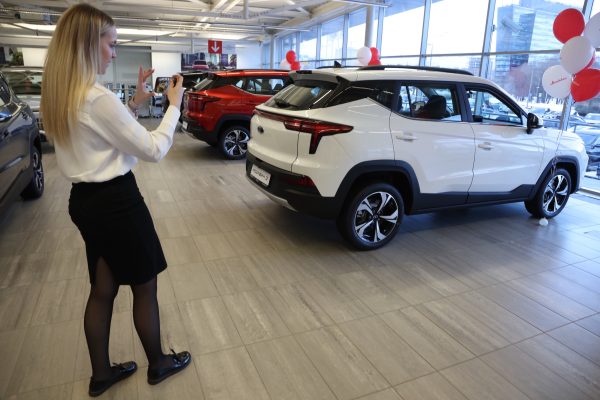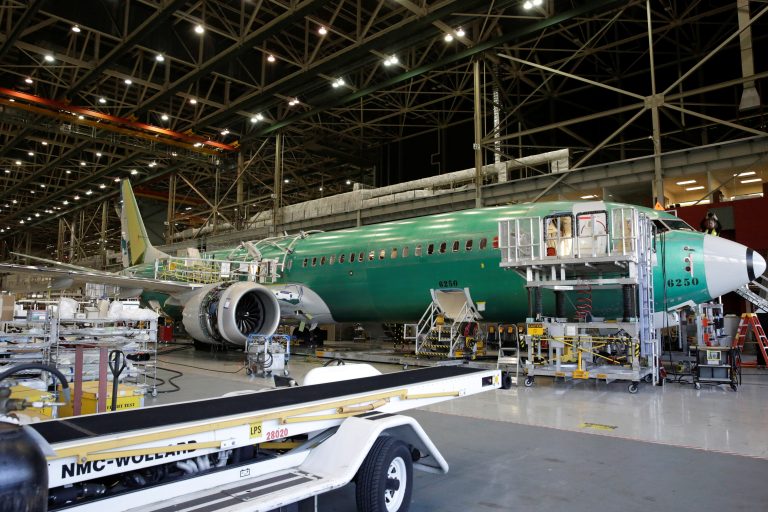As the exodus of Western carmakers and Western sanctions for the invasion of Ukraine narrows options for Russian consumers, Chinese automakers are filling the gap, forcing Russians to overcome their reluctance to embrace Chinese brands and stomach higher prices.
More Russians are buying Chinese cars, but public opinion about their reliability and desirability remain low, despite statements by Russian officials claiming that China’s industry has caught up to normal market standards.
- Volkswagen Assets Frozen by Russian Court, Driving Stake Into Plans to Back Out of Russia
- Russia revives Soviet-era Moskvich brand with Chinese model: Reuters
Chinese brands such as Haval, Chery and Geely now account for almost 40 percent of Russia’s new car sales, data from analytical agency Autostat and consulting company PPK showed, up from less than 10 percent in January-February of 2022, pouncing on the opportunity left by the exit of firms such as Renault Nissan and Mercedes.
Svetlana Trofimova, a sales manager for Chinese auto maker Haval, told Reuters that “when we just started selling Chinese cars in the Russian Far East, clients had fears of buying them. For the whole of this year we have been working with our customers: organize test drives, giving more information about our cars.” She noted that the cars are actually built in Russia’s Tula region, which allows the company to avoid customs and sanctions.


Vladimir Shestak, CEO of Altair Auto, told Reuters that ”The demand [for Geely] is much higher than Mercedes because the cars are more affordable. We think that by the end of the year we will sale around 250-300 cars which is pretty respectable for this car segment, specially in current conditions.” He added that Chinese manufacturers incorporate better technology than French and even sometimes Japanese automakers.
Bad reputation
Success
You are now signed up for our newsletter
Success
Check your email to complete sign up
But industry experts say that the Chinese brands need to up their quality game and not assume that Russians will flock to their cars just because of lower prices and better availability in the growing new Cold War with the West.
Maxim Kadakov, editor-in-chief of the Russian auto magazine “Za Rulem” (Behind the Wheel), told Reuters that while many predicted that Chinese cars would flood the Russian auto market, he did not believe this would happen, and his prediction was vindicated:
“I kept trying to explain to everybody that the Chinese would not flood us with cheap cars. And that’s exactly what happened. They bring a lot of cars but if we talk about price, not quality, there are no cheap cars at all,” he said.
“Chinese brands in Russia have two very serious flaws. They don’t have a reputation which leads to the fact that there’s no trust in them. Yes, they almost don’t have any competitors here anymore and they feel that they can arrogantly and quickly fill this void. But that does not mean that people can change their opinion quickly,” said Sergey Aslanyan, a Russian journalist specializing in the car market, told Reuters.
He added that Russians were not yet desperate enough to buy Chinese in large numbers.
“If a person in Russia wants to put somebody down, he will say that ‘Hey, you have a Chinese phone or your car is Chinese.’ At the moment people are not that hungry [for cars] to show real demand for Chinese products.”

People who spoke with Reuters said that Russians were warming to the idea of owning a Chinese car, but that there were still obvious gaps in quality between them and more established brands. One 28-year-old said that the difference in ride quality between the Chinese cars he had driven and a 2022 Skoda (the famous Czech manufacturer) was “massive.”
Another 28-year-old man from Moscow while checking out a Chinese car at a dealership criticized its “cheapstake” plastic and high price of 5 or 6 million rubles (about US$70,000).

Another man trying out an Exeed car said it “feels like Lada,” referring to the Soviet-Italian car brand, which was ubiquitous in the communist era as a simple vehicle of mediocre performance.
But Kadakov said that Russians were shifting towards at least considering Chinese vehicles, and that this trend had begun even before the invasion of Ukraine.
“If 10 years ago, 2 or 3 percent of people were ready to buy a Chinese car while 95 percent replied that they would never do so, now — even back in 2021 the share of Chinese cars on the Russian market was 6.8 percent. … Another year passed, and the Chinese share rose to 20 percent. So 20 percent of customers buy Chinese cars, while 70 or 60 percent say never.”
Reuters contributed to this report.















